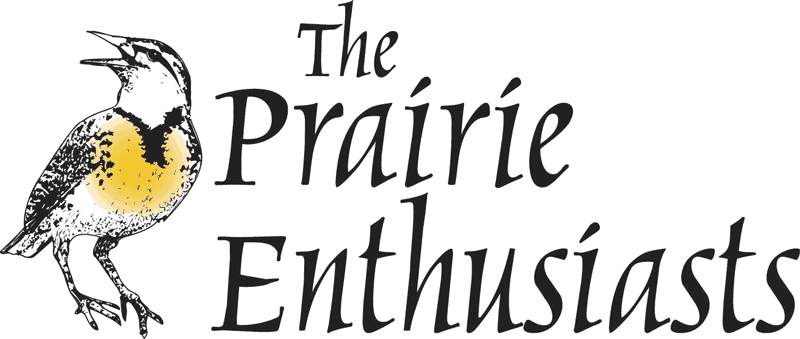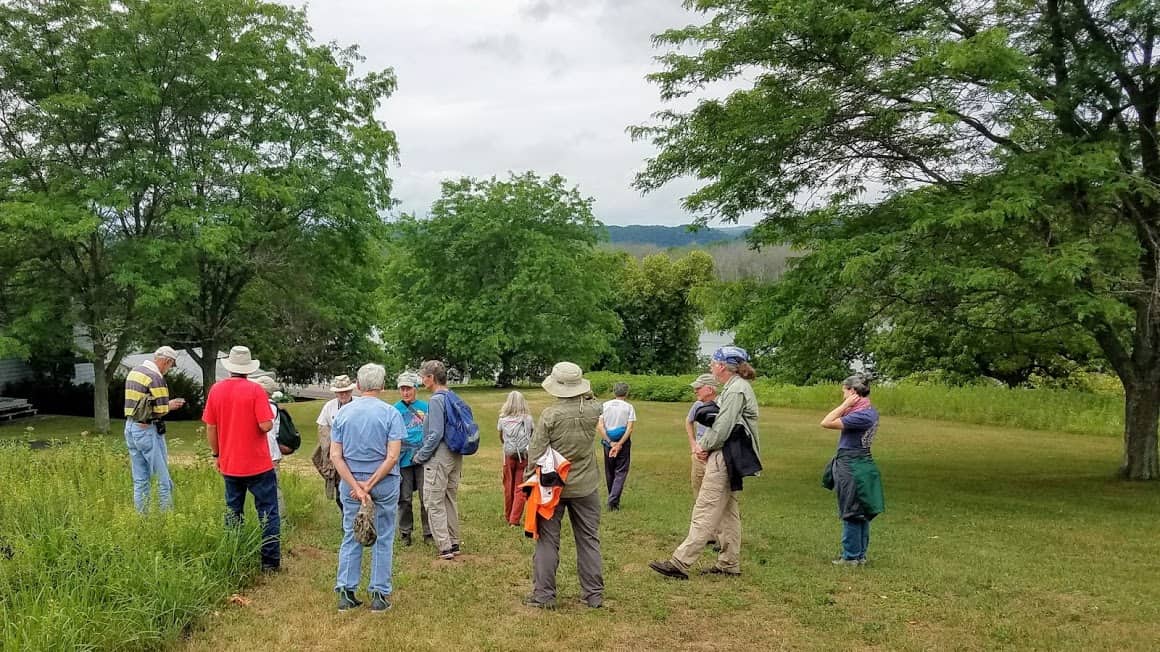
by The Prairie Enthusiasts | Aug 31, 2021 | News

Learning about how to protect turtle nests. (Photo by Martha Querin-Schultz)
The Southwest Chapter of The Prairie Enthusiasts held a Wisconsin turtle workshop on Saturday, June 26, 2021, at Jack Kussmaul’s beautiful home near Woodman, Wisconsin.
“Taking Time for Turtles” was conducted by Dr. Rebecca Christoffel who is co-director of Turtles for Tomorrow, a non-profit organization devoted to protecting Wisconsin turtles.
Our enthusiastic group of 18 learned all about Wisconsin’s turtles from Dr. Christoffel, including who they are, how to identify them, where they’re found, and how they are managed and conserved. The group spent the morning in the classroom, learning about Wisconsin’s turtles and how to identify them including some practice identifications. Wisconsin has eleven turtle species. Ten are aquatic or semi-aquatic and one is strictly terrestrial (land dwelling).
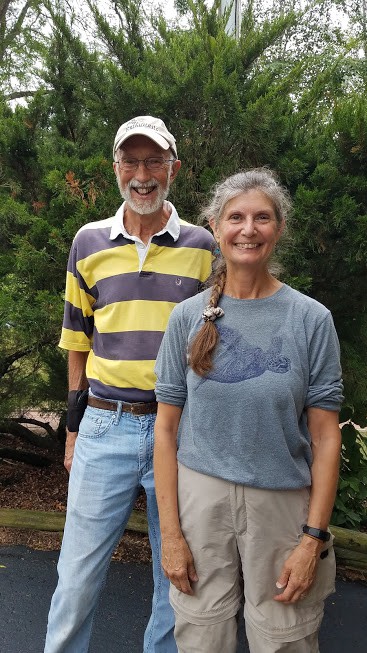
Host Jack Kussmaul, along with guest speaker, Dr. Rebecca Christoffel, co-director of Turtles for Tomorrow). (Photo by Martha Querin-Schultz)
In the afternoon after lunch, we went to Jack’s amazing property which is along the Wisconsin River, searching for turtles and signs of turtles, and we learned what we can do to protect turtle nests found on our properties.
While we were out walking, a couple of wild turtles came right up on to Jack’s property to lay eggs. We also were able to get up close and personal with Dr. Christoffel’s “Ambassador Turtles” that she uses in her teachings. The group had the chance to meet and hold two of the endangered and threatened turtle species in Wisconsin, the wood turtle and ornate box turtle.
Thank you to Jack Kussmaul for hosting and thank you, Dr. Christoffel, for teaching us so much!
Article by Martha Querin-Schultz
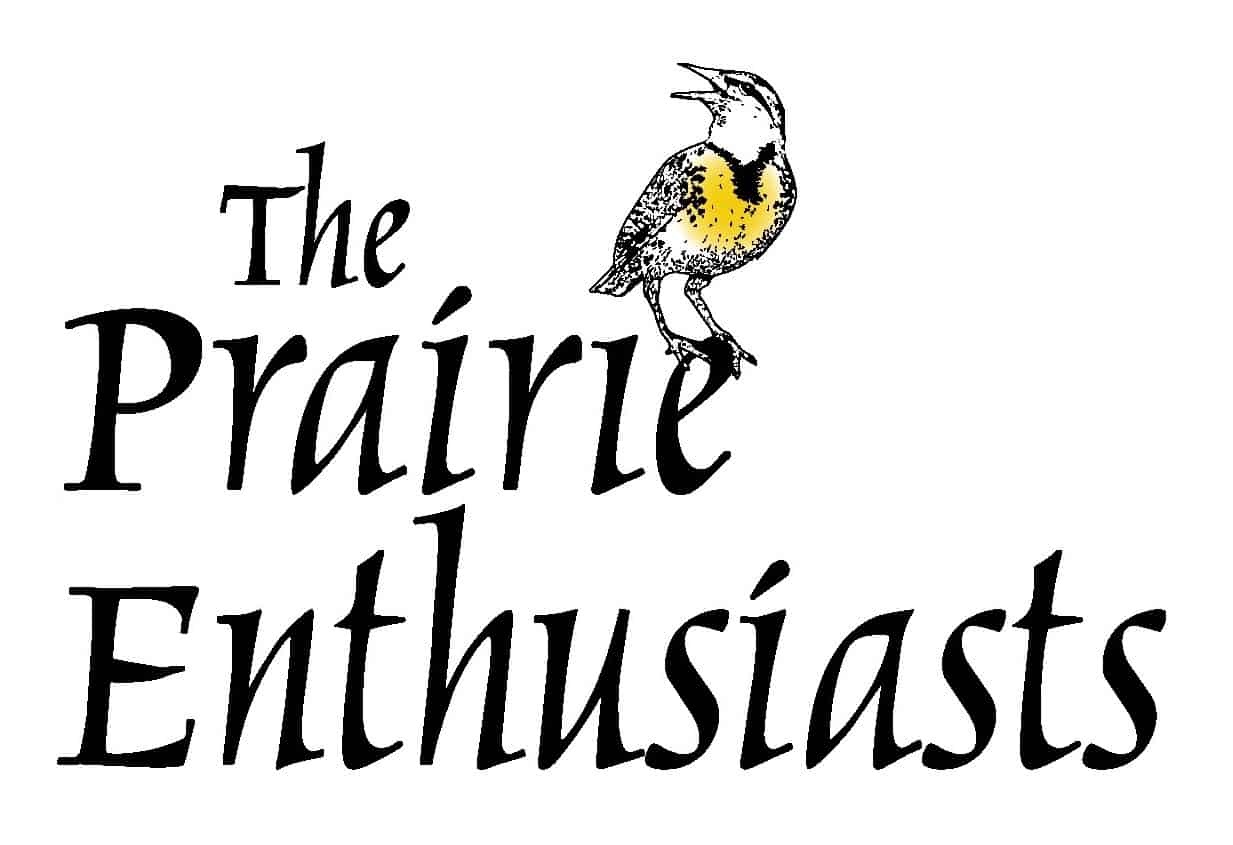
by The Prairie Enthusiasts | Aug 31, 2021 | News
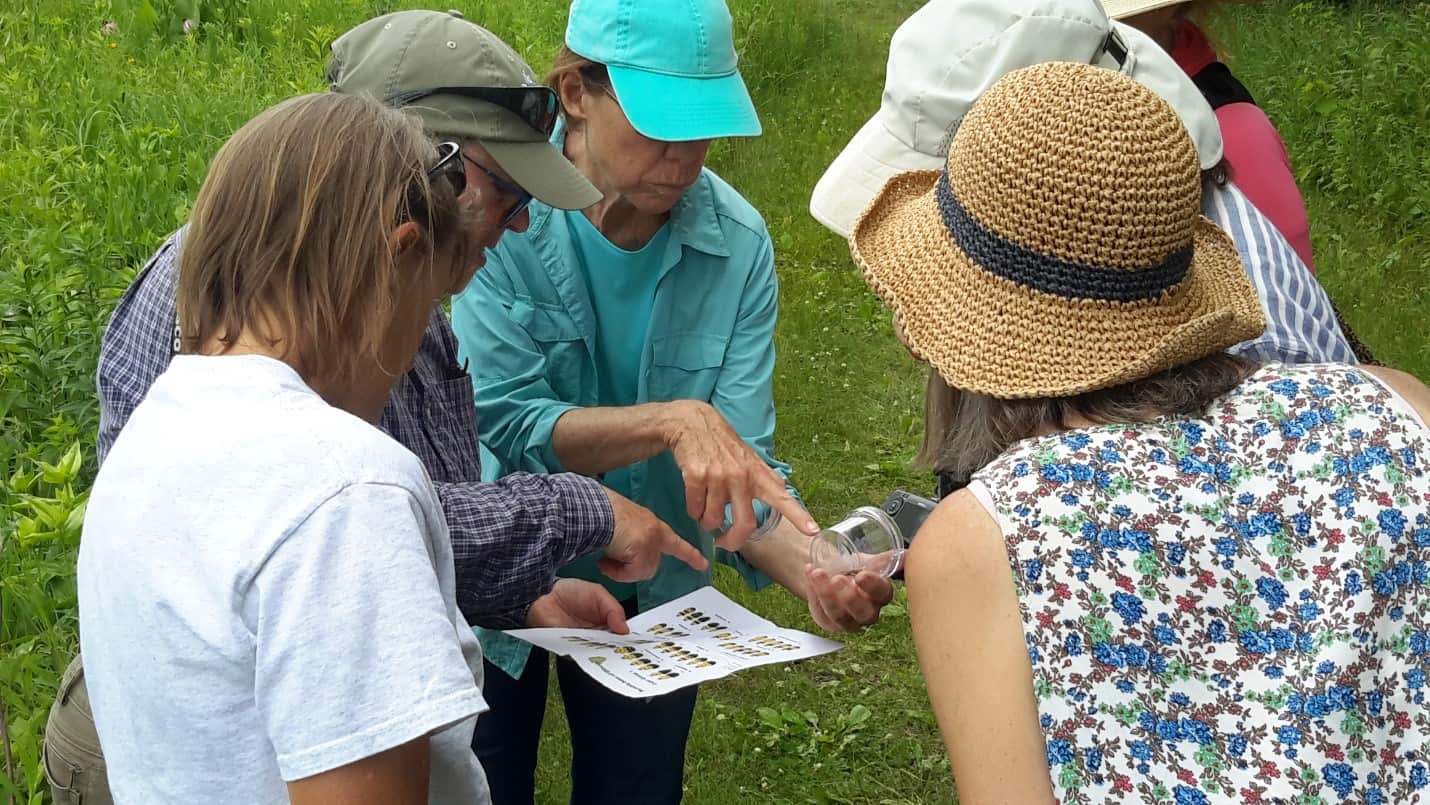
Some attendees trying to determine a species of native bumblebee (Photo & article by Susan Lipnick)
On June 27, biologist Bev Paulan treated Northwest Illinois Prairie Enthusiasts members and guests to the presentation “Native Plants Need Native Pollinators” at The Prairie Enthusiasts Hanley Savanna in rural Hanover, Illinois. The event, originally scheduled for late June 2020 but postponed because of COVID, was well worth the wait.
Topics included the following:
– Some history as to how native plants and native pollinators have adapted to each other and how the decline of one is contributing to the decline of the other in various areas of the world;
– The kinds of local native plant pollinators, which include bumblebees, wasps, flies, butterflies, moths, beetles, and birds. In other areas, bats and people are important pollinators;
– The needs of local native pollinators, including specific food and water sources, appropriate nesting sites, and overwintering sites;
– The dangers certain retail plants present to native pollinators, including cultivars or hybrids of native plants, nonnative plants, pesticides bred into GMO-modified plants;
– Problems resulting from efforts to boost populations of the nonnative honey bee; and
– Efforts home gardeners and prairie enthusiasts alike can take to boost populations of native plants. Bev also provided a list of “superfood” native forbs as well as the top five native tree species that support 90% of our local butterflies and moths. You can find This triptych of useful information on NIPE’s Facebook page, July 1, 2021 post.
After the presentation, attendees took the opportunity to ask questions and explored the prairies, trying to identify native pollinators on native plants.
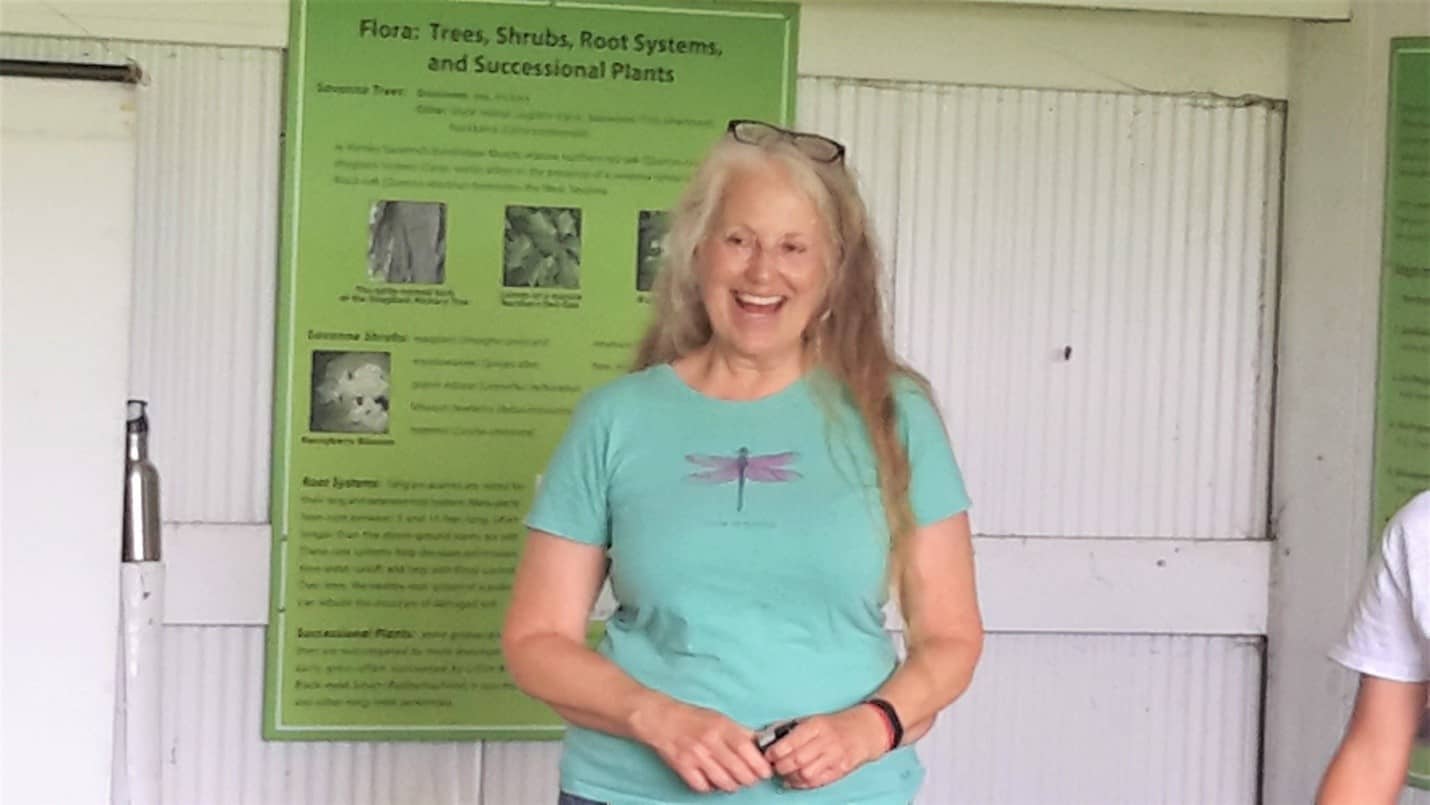
Biologist Bev Paulan, presenter. (Photo by Susan Lipnick)



